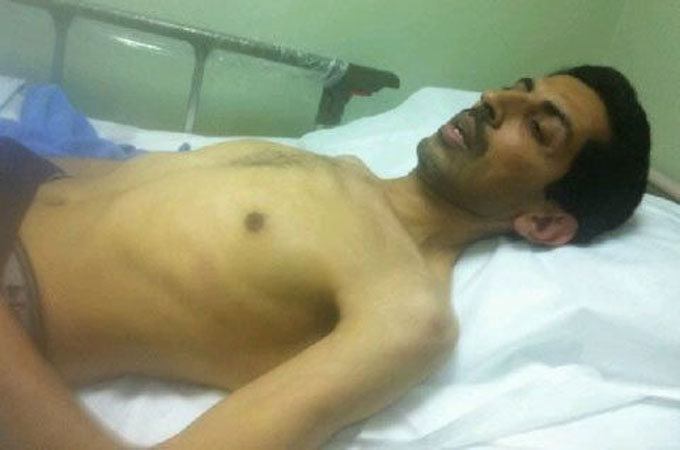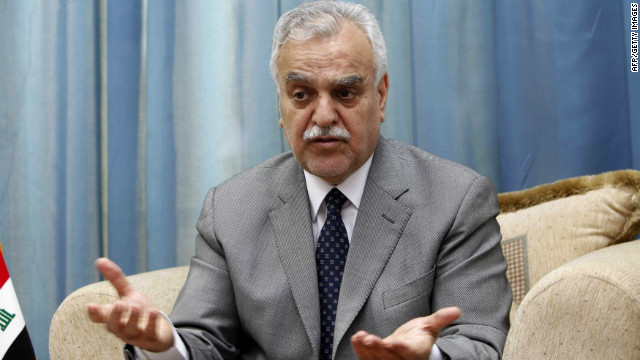By Carolyn Abdenour
Impunity Watch Reporter, Middle East
MANAMA, Bahrain – On Friday, 6 April, Bahraini and Danish citizen Abdulhadi al-Khawaja began receiving intravenous fluids to combat his 58-day hunger strike when authorities moved him to the Bahrain Defence Force Hospital. Mr. Khawaja began his hunger strike to protest the life sentence he received by a special military court for engaging in anti-government protests last year. The court convicted him of attempting to overthrow the royal family.

Mr. Khawaja’s lawyer Mohammed al-Jishi reported his client’s health is deteriorating, and the authorities moved him to the hospital after he dropped twenty-two pounds. Mr. Jishi stated, “His condition has worsened…his blood pressure is down, and he is getting an IV (intravenous) drip.” He added the IV drip only contained saline and glucose, and “The doctors said this won’t be enough to keep him alive. He is in a critical phase and he still needs to take food.”
His family fears he will die from an impending cardiac arrest and urges the government to take action to save his life. Furthermore, Khadija Almouosawi, Mr. Khawaja’s wife, asserts the nurses and guards mistreated her husband in the military hospital.
Human rights groups are also advocating for Mr. Khawaja’s release. Mr. Khawaja is a Danish citizen, and Denmark has requested Bahrain to transfer Mr. Khawaja into its custody for medical treatment.
Moreover, authorities detained Mr. Khawaja’s daughter Zainab on Thursday for protesting her father’s “illegal treatment”. On Friday, the authorities transferred Zainab to a prison before releasing her on Saturday.
Furthermore, thousands of protesters calling for Mr. Khawaja’s release endured the teargas and water cannons security forces fired upon them on Friday. These protesters have held daily rallies, and they have planned mass demonstrations supporting their fellow protester’s release.
The authorities arrested Mr. Khawaja last April after a protest at Pearl Roundabout in Manama, Bahrain’s capital. Protests occurred in Bahrain when police and security forces confronted people peacefully occupying the roundabout.
Amnesty International asserts the court convicted Mr. Khawaja in June with a confession obtained under duress and without proper evidence demonstrating he relied on violence during the protests. Mr. Khawaja was one of eight protestors who received life sentences for their charged crimes. Mr. Khawaja also reported to the Bahrain Independent Commission of Inquiry he endured tortious acts throughout his detention.
After her release, Zainab tweeted, “My father just called, he can hardly speak, and he can hardly breath(e).”
For further information, please see:
Al Jazeera – Bahrain Mulls Denmark Plan For Hunger Striker – 7 Apr 2012
Channel 4 News – Calls To Drop F1 Grow as Bahrain Hunger Striker Hotpialised – 7 Apr 2012
BBC – Bahrain Hunger-Striker al-Khawaja Moved to Hospital – 6 April 2012
Tehran Times – Bahrain Hunger Striker’s Daughter Jailed – 6 Apr 2012



